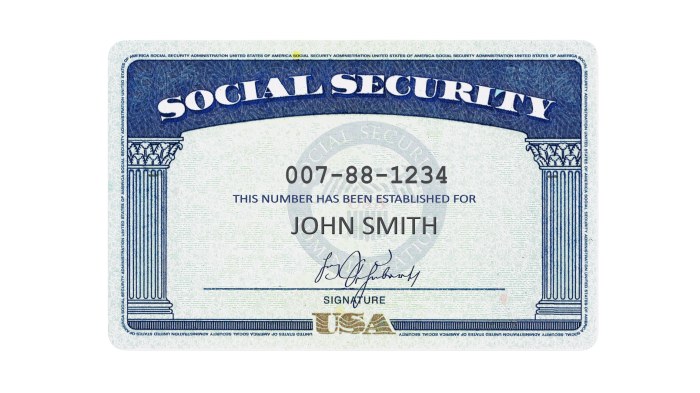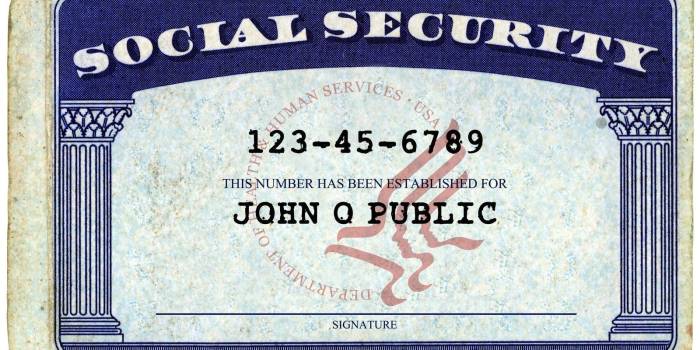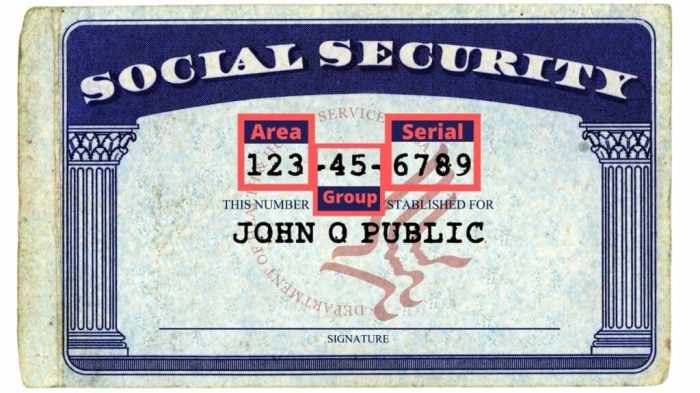The Social Security Number (SSN) is a unique identifier assigned to individuals in the United States. It serves as a vital tool for various purposes, including employment, taxation, and social welfare programs.
The SSN consists of nine digits, each with a specific significance. It is issued by the Social Security Administration and is essential for individuals to access essential services and benefits.
Definition and Purpose
A Social Security Number (SSN) is a unique nine-digit number assigned to U.S. citizens, permanent residents, and certain temporary workers by the Social Security Administration (SSA). Its primary purpose is to track individuals’ earnings and contributions to the Social Security system, which provides retirement, disability, and survivor benefits.
Structure and Format
An SSN consists of three parts:
- The first three digits represent the area where the SSN was issued.
- The middle two digits are known as the group number.
- The last four digits are the serial number.
Issuance and Assignment

The SSA issues SSNs to individuals who meet specific eligibility criteria, including U.S. citizenship or permanent residency. The process involves submitting an application, providing proof of identity and citizenship, and paying a fee.
Uses and Importance

SSNs are used for various purposes, including:
- Reporting earnings and paying taxes
- Applying for government benefits
- Opening bank accounts
- Renting or purchasing property
Privacy and Security
SSNs are sensitive information that should be protected from misuse or fraud. Individuals should take steps to safeguard their SSNs by keeping them confidential and reporting any suspected identity theft or misuse.
Alternatives and Substitutes
In some cases, alternative identification systems may be used in place of SSNs, such as:
- Employee Identification Numbers (EINs) for businesses
- Individual Taxpayer Identification Numbers (ITINs) for non-resident aliens
Historical Evolution: Social Security Number
The SSN system was introduced in 1935 as part of the Social Security Act. It has undergone several changes over the years to improve its accuracy and security.
International Comparisons
Many countries have their own equivalent of the SSN, such as the National Insurance Number (NIN) in the United Kingdom and the Social Insurance Number (SIN) in Canada.
Legal and Ethical Considerations
The use of SSNs raises legal and ethical concerns, including privacy violations, data breaches, and potential discrimination.
Future Trends and Innovations
Emerging technologies, such as blockchain and biometrics, may lead to new and innovative ways of identifying individuals and managing sensitive information like SSNs.
End of Discussion

The SSN is a crucial identification system that plays a significant role in modern society. It ensures the efficient administration of social welfare programs, streamlines employment processes, and contributes to the overall well-being of individuals.
Query Resolution
What is the purpose of a Social Security Number?
The SSN is used to identify individuals for various purposes, including employment, taxation, and social welfare programs.
Who is eligible for a Social Security Number?
Individuals who are citizens, permanent residents, or legally authorized to work in the United States are eligible for an SSN.
How do I apply for a Social Security Number?
You can apply for an SSN by completing Form SS-5 and submitting it to the Social Security Administration.
Is my Social Security Number confidential?
Yes, your SSN is confidential and should not be shared with anyone other than authorized individuals or organizations.